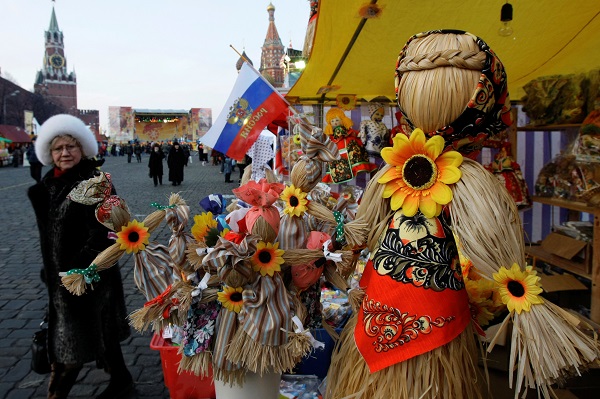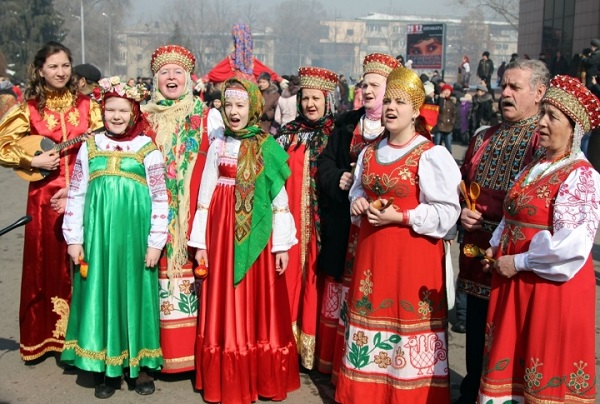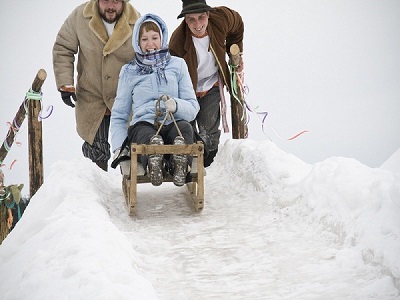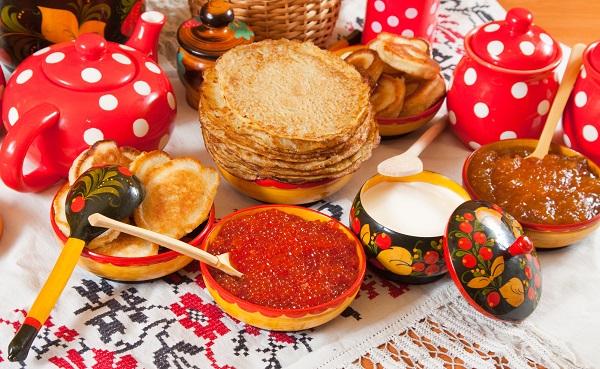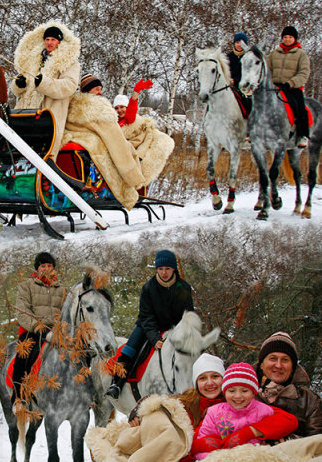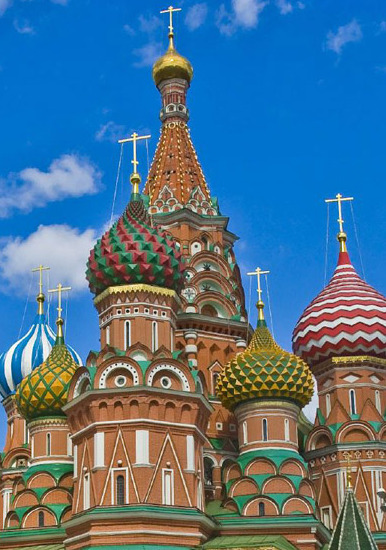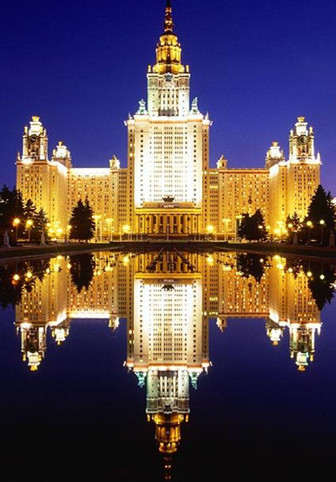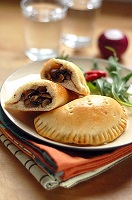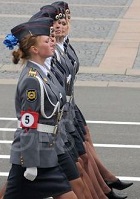Maslenitsa Spring Festival (Russian: Ма́сленица, also known as Butter Week, Crepe Week), is an Easter Slavic religious and folk holiday in Russia, Ukraine and Belarusian. It corresponds to the Western Christian Carnival. It is the brightest and funniest festival among Russian holidays. It begins at the 8th week before Orthodox Easter. This year 2015 it will be celebrated from Feb. 16 to Feb. 22.
Origin Of Maslenitsa Spring Festival
In Slavic mythology, Maslenitsa is to celebrate the imminent end of the winter and welcome the coming spring. The holiday lasts a week and after the week people are forbidden to eat meat, fish, eggs and dairy products for 40 days. Thus, people seize the last chance to do what they want, indulging themselves in eating and drinking, enjoying singing, dancing and outdoor activities. In 2005, it was regarded as the Holiday of USSR.
How Russian & Ukrainian People Celebrate
Russian people hold many celebration activities, including making and eating bliny( pancakes or crepes), snowball fights, sleigh rides, riding on swings, dancing and singing. Boxing and other sports activities are also indispensable. In some regions, people have different traditional activities for each day. For example, the first day for making bliny, the third day fo the sons-in-law to visit their parents-in-law, etc.
According to tradition, Russian people believe that if you have a happy Maslenitsa, you will be happy and lucky all the year round. Want to make your lady happy? Want to join the fun? Connect with your CharmDate lady and savor the richness and diversity of collective heritage in Russia and Ukraine.
Maslenitsa Highlights
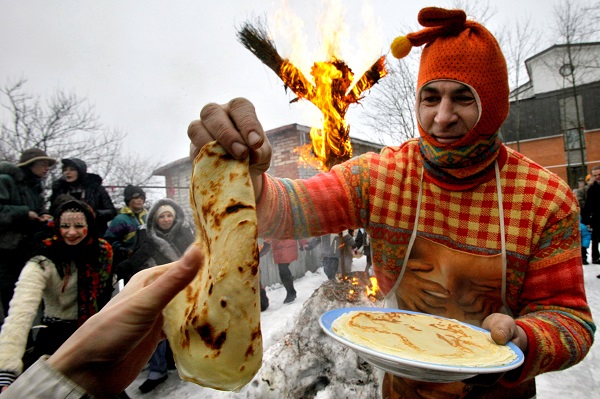
A man dressed as a medieval East Slavic harlequin distributes blini in St. Petersburg, Russia, during the last day of Maslenitsa.Behinde a small effigy of Lady Maslenitsa was burned.
Forgiveness Sunday: As the culmination of Maslenitsa, Sunday, the last day is regarded as the most important and the most meaningful. It’s called “Forgiveness Sunday”. People make a bow before their friends or relatives and ask forgiveness. Moreover, it makes the end of cold winter and the coming of spring.
Bliny: the most characteristic food and the indispensable. It is made from food butter, eggs and milk allowed by the tradition. It is like pancakes or crepes stuffed with things like smoked salmon, cheese, caviar and fruits compotes. It symbolizes the sun in spring. Hostesses are busy preparing food and celebrating during the week-long holiday.

